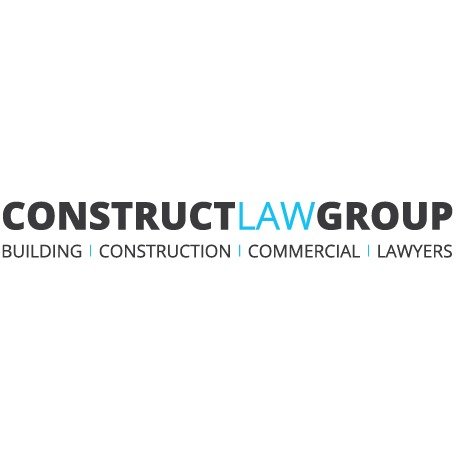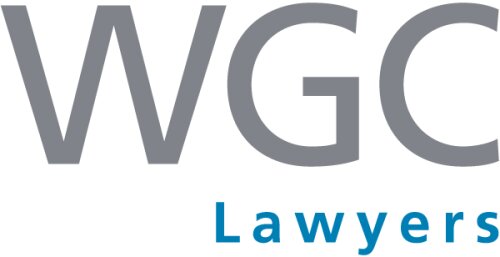Best Creditor Lawyers in Australia
Share your needs with us, get contacted by law firms.
Free. Takes 2 min.
Or refine your search by selecting a city:
List of the best lawyers in Australia
About Creditor Law in Australia
Creditor law in Australia comprises a framework of legal regulations and protections that govern the rights of creditors. It regulates the ways in which creditors can seek repayment from debtors, ensuring fair practices in claiming debts. This legal framework includes the protection of creditors' rights in insolvency situations, personal and corporate insolvency, and the enforcement of security interests over assets. Acts such as the Corporations Act 2001 and the Personal Property Securities Act 2009 play a critical role in creditor-related legal processes in Australia.
Why You May Need a Lawyer
Legal assistance in creditor matters can be invaluable in various situations. Here are some common scenarios where you might need a lawyer:
- If you are a creditor struggling to recover a debt from a debtor.
- When navigating complex insolvency or bankruptcy proceedings.
- If you need advice on enforcing security interests over a debtor's assets.
- In case of disputes arising from creditor-debtor relationships.
- To ensure compliance with relevant legislation and regulations.
- For the drafting and execution of legal documents such as contracts or security agreements.
- When pursuing legal action to recover debts or enforce judgments.
Local Laws Overview
Creditor law in Australia is shaped significantly by several important pieces of legislation:
- The Corporations Act 2001: This act governs corporate insolvency and outlines mechanisms for liquidations, receiverships, and other insolvency processes.
- The Bankruptcy Act 1966: Applicable to personal insolvency, defining the processes for bankruptcy and personal insolvency agreements.
- The Personal Property Securities Act 2009: Establishes a national register of security interests over personal property and outlines the procedures for creating and enforcing these interests.
- The Australian Consumer Law: Provides protections for both debtors and creditors against unfair practices.
Understanding these laws and their implications is essential for both creditors and debtors in Australia.
Frequently Asked Questions
What is the process for recovering a debt in Australia?
Typically, it begins with informal negotiations. If these do not succeed, creditors may issue a formal demand for payment, initiate legal proceedings, or seek resolution through a court order.
What is a secured creditor?
A secured creditor has a security interest over specific assets of a debtor, providing priority of payment over unsecured creditors in case of insolvency.
How does creditor priority work in insolvency?
In insolvency, secured creditors are generally paid first from the sale of secured assets. Unsecured creditors are paid after the secured claims, in accordance with statutory distribution priorities.
Can a creditor force a debtor into bankruptcy?
Yes, creditors can file a creditor's petition with a court to declare a debtor bankrupt if the debtor owes more than the threshold amount set by legislation and has shown inability to pay.
What is the role of a liquidator or trustee?
Liquidators (in corporate insolvency) or trustees (in personal bankruptcy) manage the insolvent estate, liquidating assets, distributing funds to creditors, and conducting investigations related to the insolvency.
How can I enforce a court judgment to recover a debt?
You can apply for enforcement options such as wage garnishment, seizure and sale of property, or a writ for the levy of property through Australian courts.
What protections exist for creditors under Australian law?
Creditor protections include the ability to register security interests, priority claims in insolvency proceedings, and enforce contractual rights under the Corporations Act and Bankruptcy Act.
Can a creditor repossess goods under a security agreement?
Yes, if a debtor defaults on a security agreement, the creditor may repossess goods securing the agreement, subject to the terms of the agreement and statutory provisions.
Is mediation available for creditor-debtor disputes?
Yes, mediation is often encouraged and can be a preferred method for resolving disputes without the need for lengthy and costly legal proceedings.
What is a personal guarantee, and how does it affect creditors?
A personal guarantee is a promise made by an individual (usually a director or shareholder) to repay a business debt if the business itself cannot. It provides creditors with an additional recourse for debt recovery.
Additional Resources
For those seeking further information or assistance, consider the following resources:
- Australian Financial Security Authority (AFSA): Oversees personal insolvency and provides guidance on bankruptcy.
- Australian Securities and Investments Commission (ASIC): Regulates corporate insolvency and provides resources for creditors.
- Consumer Action Law Centre: Offers advice and support on consumer debt and credit issues.
- Australian Competition and Consumer Commission (ACCC): Protects against unfair practices affecting both creditors and debtors.
Next Steps
If you find yourself needing legal assistance regarding creditor matters, consider the following steps:
- Assess Your Situation: Clearly identify the issues you are facing and gather all relevant documentation.
- Seek Professional Advice: Consult with a lawyer who specializes in creditor law to discuss your options and develop a strategy.
- Understand Your Rights and Obligations: Make sure you are fully informed about your legal rights and obligations in the context of the situation.
- Consider Alternative Dispute Resolution: Explore options like mediation to resolve disputes outside of court.
- Take Legal Action if Necessary: If informal solutions fail, your lawyer can help you determine the best legal action to take.
By following these steps, you can better navigate the complexities of creditor law and protect your interests effectively.
Lawzana helps you find the best lawyers and law firms in Australia through a curated and pre-screened list of qualified legal professionals. Our platform offers rankings and detailed profiles of attorneys and law firms, allowing you to compare based on practice areas, including Creditor, experience, and client feedback.
Each profile includes a description of the firm's areas of practice, client reviews, team members and partners, year of establishment, spoken languages, office locations, contact information, social media presence, and any published articles or resources. Most firms on our platform speak English and are experienced in both local and international legal matters.
Get a quote from top-rated law firms in Australia — quickly, securely, and without unnecessary hassle.
Disclaimer:
The information provided on this page is for general informational purposes only and does not constitute legal advice. While we strive to ensure the accuracy and relevance of the content, legal information may change over time, and interpretations of the law can vary. You should always consult with a qualified legal professional for advice specific to your situation.
We disclaim all liability for actions taken or not taken based on the content of this page. If you believe any information is incorrect or outdated, please contact us, and we will review and update it where appropriate.
Browse creditor law firms by city in Australia
Refine your search by selecting a city.

















